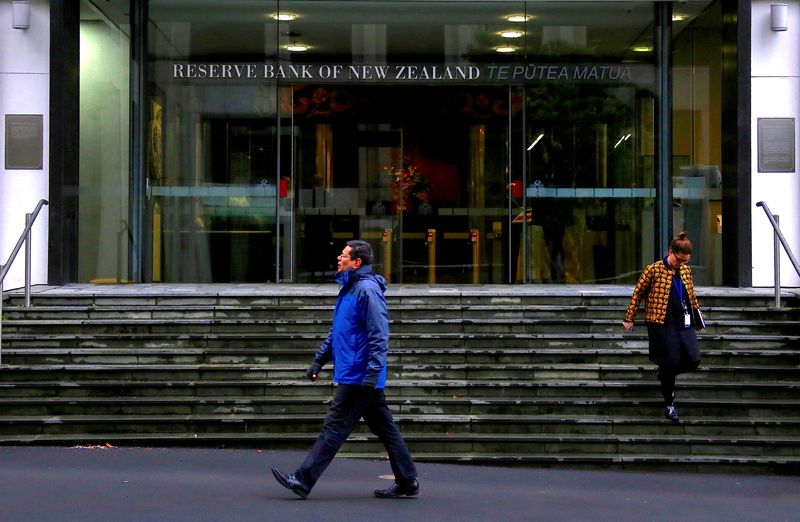By Lucy Craymer
WELLINGTON (Reuters) -New Zealand's central bank delivered its sixth straight interest rate rise on Wednesday and signaled it remained comfortable with its planned aggressive tightening path to restrain runaway inflation.
The Reserve Bank of New Zealand (RBNZ) raised the official cash rate (OCR) by 50 basis points to 2.5%, a level not seen since March 2016. Continued rapid tightening to maintain price stability and support maximum sustainable employment was appropriate, it said.
Although nearly all economists polled by Reuters had expected the central bank's policy committee to lift the cash rate by 50 basis points, there was speculation it might soften its hawkish outlook, given alarming falls in business and consumer confidence and an accelerating slide in house prices.
"The Committee agreed to maintain its approach of briskly lifting the OCR until it is confident that monetary conditions are sufficient to constrain inflation expectations and bring consumer price inflation to within the target range," the central bank said in a statement.
However, it added that the committee acknowledged there was near-term upside risk to consumer price inflation and emerging medium-term downside risks to economic activity.
Following the broadly neutral statement, the New Zealand dollar barely moved but interest rates continue to nudge lower, with the two-year swap rates down 5 basis points at 3.845%.
INFLATION PEAK
A front-runner among central banks in withdrawing pandemic-era stimulus, the RBNZ has moved hawkishly to curb inflation, which was 6.9% in the first quarter, the highest rate in three decades. The cash rate is up tenfold from a record low of 0.25% in October.
The RBNZ has forecast inflation peaking at 7.0% in the second quarter of 2022, well above its target of 1% to 3%.
Second-quarter price data due next week will show whether that forecast has been exceeded. Surprisingly strong figures would affect the future track of interest rate rises, ANZ Bank said.
But ANZ added that RBNZ decisions were likely to get harder in the second half of the year as evidence mounted that tightening financial conditions were indeed dampening demand and, eventually, inflation pressures.
"The debate around 'how much is too much?' will naturally get much louder," it said.

Like most economists, ANZ's expect the central bank to raise interest rates by a further 50 basis points in August. However, there is growing expectation that after that the rises may slow down.
Barclays (LON:BARC) said in a note that after a 50-basis-point rise in August, the balance of risk would shift towards 25-basis-point increments, reflecting increasingly evident signs of moderation in domestic growth.